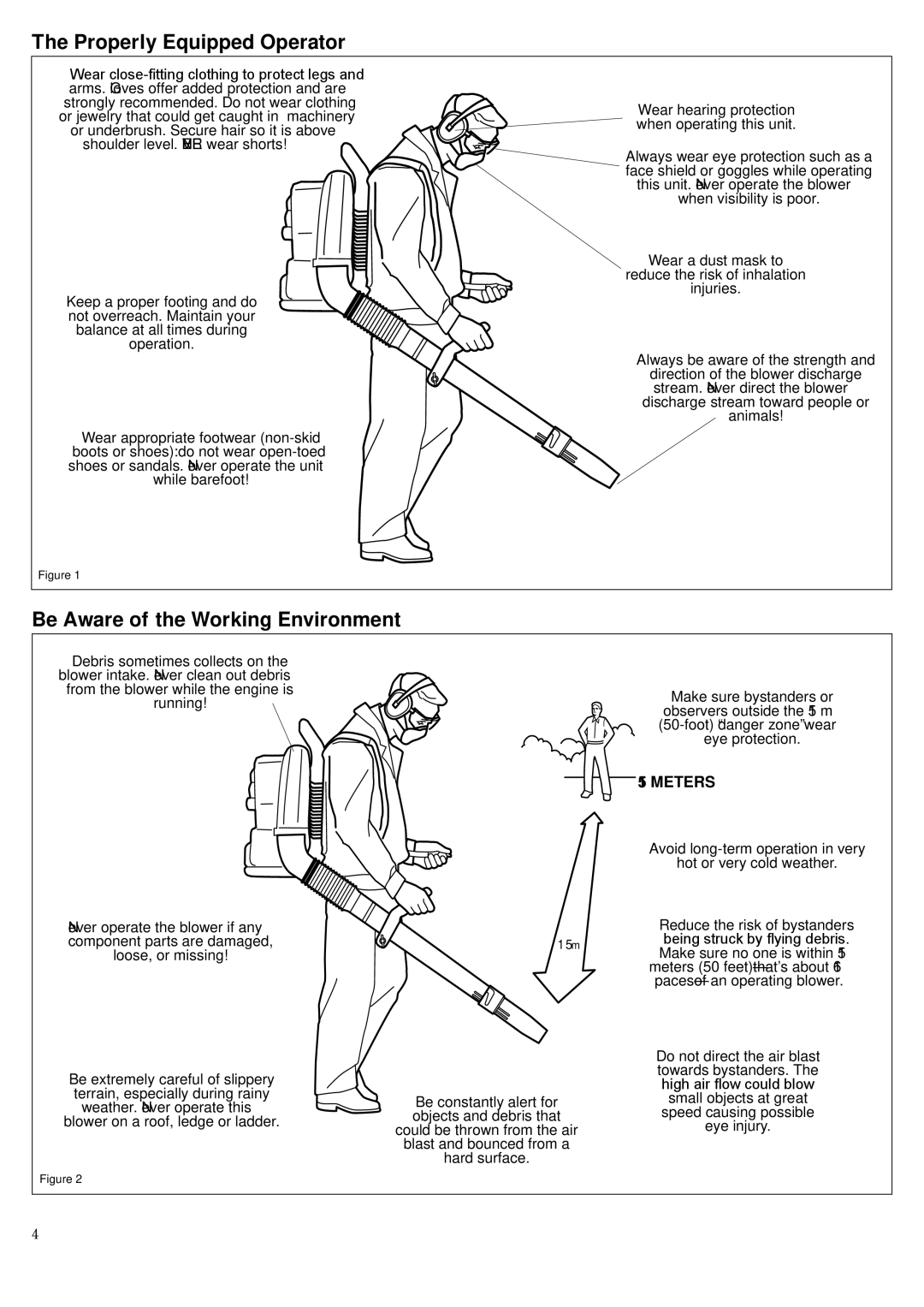
The Properly Equipped Operator
Wear
or underbrush. Secure hair so it is above shoulder level. NEVER wear shorts!
Keep a proper footing and do not overreach. Maintain your balance at all times during operation.
Wear appropriate footwear
Figure 1
Wear hearing protection when operating this unit.
Always wear eye protection such as a face shield or goggles while operating this unit. Never operate the blower when visibility is poor.
Wear a dust mask to
reduce the risk of inhalation
injuries.
Always be aware of the strength and
direction of the blower discharge stream. Never direct the blower discharge stream toward people or animals!
Be Aware of the Working Environment
Debris sometimes collects on the
blower intake. Never clean out debris from the blower while the engine is running!
Never operate the blower if any
component parts are damaged,![]() 15m loose, or missing!
15m loose, or missing!
Be extremely careful of slippery |
| |
terrain, especially during rainy | Be constantly alert for | |
weather. Never operate this | ||
objects and debris that | ||
blower on a roof, ledge or ladder. | ||
could be thrown from the air | ||
| ||
| blast and bounced from a | |
| hard surface. |
Figure 2
Make sure bystanders or observers outside the 15 m
15 METERS
Avoid long-term operation in very
hot or very cold weather.
Reduce the risk of bystanders being struck by flying debris. Make sure no one is within 15 meters (50
Do not direct the air blast towards bystanders. The high air flow could blow small objects at great speed causing possible eye injury.
4
